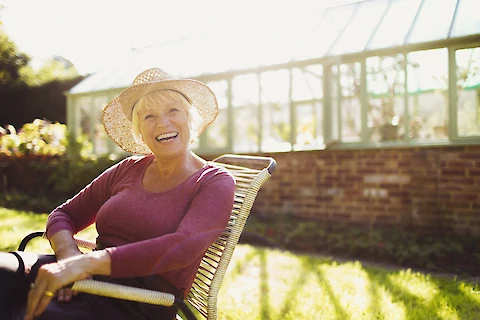
As seniors enjoy the beautiful sunshine in Brevard County, remember that sun safety should be a top priority. The golden years come with an increased risk for sun-related health issues such as skin cancer and heatstroke. With some simple adjustments to seniors' daily routines, however, they can stay safe while soaking up the sun's warmth.
In this blog post from Senior Helpers Brevard County, we'll explore why seniors may be at a higher risk and provide practical tips on sun safety. Plus, we'll show how easy it is to incorporate sun protection habits into everyday activities like gardening or walking outdoors.
Read on to discover the benefits of sun safety for seniors' overall health and well-being.
Reasons for Increased Sun-Related Health Risks in Seniors
Understanding why seniors may be more susceptible to sun-related health issues is the first step in practicing sun safety. As we age, our skin becomes thinner and less effective at providing natural sun protection.
Additionally, seniors' immune systems may not function as optimally as they once did, making it easier for sun damage to occur. Certain medications can also increase sun sensitivity, and pre-existing health conditions might exacerbate the effects of sun exposure.
Choosing Effective Sunscreen Products
One of the key components of sun safety is choosing an effective sunscreen product. Look for a sunscreen that offers broad-spectrum protection, which means it shields against both UVA and UVB rays. Opt for a product with at least SPF 30 to ensure adequate protection.
Water-resistant sunscreens are also a good choice, as they maintain their effectiveness even when seniors are swimming or sweating. Seniors should remember to apply sunscreen 15-30 minutes before sun exposure and reapply every 2 hours or sooner if they've been swimming or sweating. Don't forget to protect those often-missed areas like ears, neck, and tops of feet.
Wear Protective Clothing
In addition to sunscreen, covering up with appropriate clothing is essential for sun safety for seniors. Choose long sleeves and pants made from light, breathable fabrics to keep seniors cool while protecting their skin from harmful UV rays. If possible, invest in UPF-rated clothing that has been specifically designed to block UV radiation. Not only does covering up reduce seniors' risk of skin cancer, but it also helps prevent premature aging caused by sun exposure.
Wear Hats and Sunglasses
Hats and sunglasses are also crucial when it comes to sun protection. A wide-brimmed hat will provide maximum coverage for a senior's face, ears, and neck. When selecting sunglasses, make sure they block 100% of UV rays to protect seniors' eyes from damage. These simple accessories can significantly reduce their risk of developing cataracts and macular degeneration.
Find Shade When Necessary
Seeking shade when necessary is an excellent strategy for minimizing sun exposure. Seniors should try to avoid spending time outdoors during peak sun hours, which typically occur between 10 a.m. and 4 p.m. If they must be outside during these times, make use of available shade from trees, buildings, or umbrellas to protect their skin. Seeking shade not only reduces seniors' risk of heatstroke but also helps prevent sunburn.
Incorporating Sun Safety Into Seniors' Everyday Habits
Incorporating sun safety habits into everyday activities is easier than one might think. When gardening, for instance, seniors should make sure to wear protective clothing, a hat, and sunglasses, and apply sunscreen regularly. Take breaks in the shade to avoid prolonged sun exposure. If seniors enjoy walking outdoors, choose routes with plenty of shaded areas and wear appropriate clothing and accessories. Seniors should also not forget to bring water with them to stay hydrated.
Senior Helpers Provide Premium In-Home Senior Care
Sun safety should be an essential part of every senior's daily routine. By choosing effective sunscreen products, covering up with appropriate clothing, wearing hats and sunglasses, staying hydrated, and seeking shade when necessary, seniors are taking essential steps toward maintaining overall health and well-being.
If you or a loved one in Titusville, Orlando, Cape Canaveral, Cocoa, Cocoa Beach, Merritt Island, or Rockledge need assistance in maintaining a sun-safe routine, contact Senior Helpers Brevard County for personalized care and support.